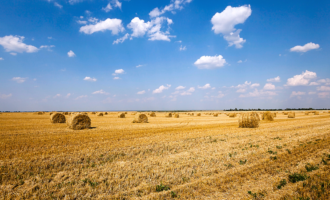Scrutton Bland’s Digital Farming Summit took place on Wednesday 20 January, with the theme of resilience. The summit explored some of the issues currently facing the agricultural community including the economic aspects of regenerative and conservation farming methods, the current grants, funding schemes and government outlook for agriculture, precision farming and machinery, agricultural tax strategies and commercial egg production.
Nick Banks, Business Advisory Partner and Head of Agriculture at Scrutton Bland introduced the event and was joined by Argus Hardy co-founder and trustee of WildEast, Richard Harding of Groundswell Agronomy, Will Mitcham, Partner at Wilson Wraight, Andrew Knowles, Chief Executive of Fram Farmers and Gavin Birchall, Tax Partner at Scrutton Bland.
The Resilience Farming Summit attracted over 120 delegates from across the region and beyond, who heard first from Argus Hardy who explained the aims and objectives of WildEast and outlined their strategy to help East Anglian farmers to move towards a nature recovery approach to land management, with the aim of returning 20% of their land, or 250,000 hectares to nature. Argus noted that WildEast’s ambitions are ambitious, but that many farmers already recognise the deficit in their local biodiversity. “By challenging ourselves, no matter the scale of our operations, and broadening the focus of nature restoration projects, farmers can make space for nature within a working landscape.”
Richard Harding of Groundswell Agronomy then continued the theme of resilience, by talking about the realities of regenerative farming, giving examples of the ways that cover crops can contribute to healthy yields and benefit the soil food web – as well as bringing diversity and creativity in crop rotations and invigorating the soil structure. He encouraged farmers to be opportunistic in order to mitigate against risk at the time of sowing; this may mean farmers are not clear about whether the crop sown will be a cash crop, a forage crop or a cover crop.
The next speaker, Will Mitcham, Partner at Wilson Wraight delivered a comprehensive rundown of the latest details for the government’s Environmental Land Management Scheme. The details of the funding initiatives such as Future Farm Resilience Fund, the Farming Investment Fund and the Farming Transformation Fund Improving Farm Productivity grant (launched on Wednesday 19 January 2022) may be complex, but it is in farmers’ best interests to understand how to apply and administer them, and Will emphasised the importance of taking a collaborative approach in order to optimise sustainable farming and countryside stewardship across our region.
Andrew Knowles, CEO of Fram Farmers was the next speaker, and also emphasised the cooperative approach to business. Resilience he said, was slightly misleading, and it would be better to talk about business vitality: learning to balance the things like government policy, commodity markets and Covid – which are all outside our control – with opportunities you can use and control, such as assets, finances, risk management and people you work with. Building on his theme, Andrew noted that people are a business’s greatest asset, and that as the farming workforce has shrunk, so the need for skilled and knowledgeable people has grown.
Finally, Gavin Birchall, Tax Partner at Scrutton Bland and specialist in tax issues relating to land management and agriculture, spoke about expenditure relating to farming and diversified activities, and ownership/sale of land and buildings, in particular the associated tax risks and tax reliefs. He clarified latest developments on furnished holiday lets, and tax breaks for woodland planting schemes, as well as the Annual Investment Allowance, Capital Allowance and Structures and Buildings Allowance.
The digital event on 19 January was organised by Scrutton Bland, who specialise amongst other things, in providing financial advice to the agricultural sector. Head of Agriculture Nick Banks commented: “We recognise the importance and value of engaging with our farming clients. A farming business must have resilience at a time of significant change in the industry. Collaboration and support through sharing knowledge is key. Informed decisions require good data and we seek to work with our clients to ensure their financial systems and reporting deliver timely and accurate information.”
As part of the summit, Scrutton Bland pledged the cost of a bacon roll per attendee to RABI, the Royal Agricultural Benevolent Association. RABI is a national charity that provides support at a local level to those who currently work within agriculture and also to those who are no longer able to work due to ill-health, accident or age. Initial advice can be accessed via the RABI freephone helpline 0800 188 4444 or through referral.







